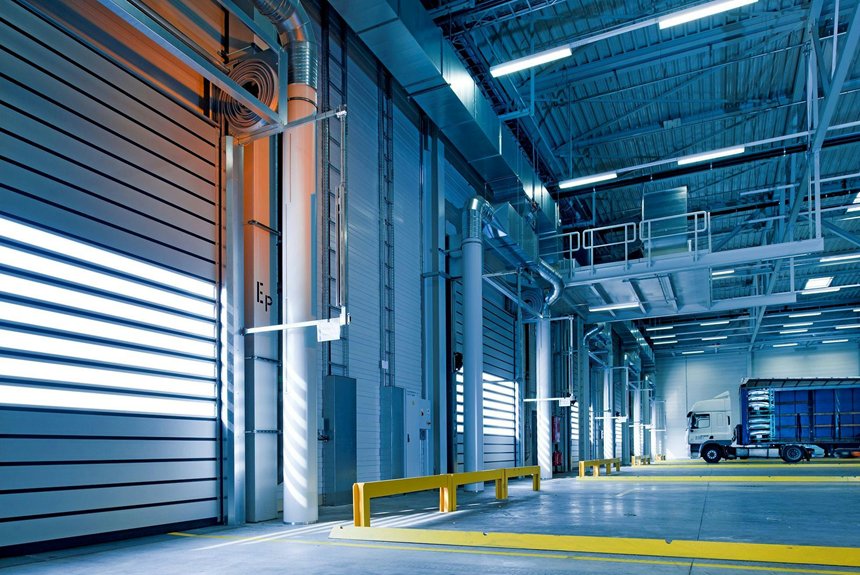The best garage door insulation is influenced by climate, budget, and personal preferences. Rigid foam insulation offers high thermal resistance (R-values) and is moisture-resistant, making it ideal for colder or more humid regions. Spray foam insulation delivers exceptional performance but tends to be more expensive and typically requires professional installation.
Fibreglass insulation is a cost-effective option that is relatively easy to install, although it is less resistant to moisture. Polyurethane and polystyrene are also effective choices, with polyurethane standing out in extreme conditions.
Considering these options will help you identify the most suitable solution for your specific needs, ensuring your garage remains comfortable throughout the year.
Comparative Analysis of Insulation Materials
When comparing various garage door insulation materials, it becomes evident that each type presents distinct advantages and disadvantages. Fibreglass insulation boasts a high R-value, making it highly effective at preventing heat loss. It’s relatively easy to cut and install; however, it can irritate the skin and eyes during handling, and it adds considerable weight to the door. Fibreglass is widely used due to its high insulating properties, but proper safety precautions should be taken during installation. Rigid foam insulation, which includes expanded polystyrene (EPS), extruded polystyrene (XPS), and polyisocyanurate, is lightweight and straightforward to install, offering moderate to high R-values. Nonetheless, it’s susceptible to pests and may pose challenges when customising around wiring. Spray foam insulation provides the highest R-values per inch and forms a sealed, airtight layer, although it typically requires professional installation. Polystyrene insulation offers decent thermal resistance at a moderate cost, while polyurethane insulation delivers superior thermal performance but tends to be heavier and more expensive.
Considerations for Choosing the Right Insulation
Choosing the right insulation for a garage door involves considering several key factors to ensure it meets the specific needs of the climate and the garage’s use.
Climate plays a significant role; for colder areas, higher R-values are essential to retain heat, while warmer regions benefit from reflective insulation that reduces heat gain. Higher R-values improve insulation effectiveness, which is especially important in maintaining consistent indoor temperatures.
Attached garages require more insulation due to shared walls with living spaces, whereas detached garages can manage with less insulation.
Moisture resistance is crucial in humid or coastal areas, making polyurethane or closed-cell spray foam excellent choices.
Additionally, regions with variable weather may necessitate dual-purpose insulation that both reflects heat and retains warmth.
Understanding these factors helps homeowners select insulation that strikes a balance between energy efficiency, comfort, and durability in their specific environment.
Installation Tips and Safety Precautions
Proper installation of garage door insulation requires careful preparation and adherence to safety measures. Before commencing, ensure the door is clean, measure each panel accurately, and allow the insulation to regain its shape overnight. Gather essential tools such as gloves and utility knives, and inspect for any gaps that may require weatherstripping.
| Safety Tips | Installation Tips |
|---|---|
| Avoid direct sunlight during installation | Use a utility knife for precise cuts |
| Wear gloves and protective gear | Secure insulation with adhesive or clips |
| Ensure proper ventilation in the garage | Tuck insulation with the vinyl side facing outward |
| Keep the workspace tidy to prevent hazards | Test the fit snugly without obstructing the door |
Conclusion
Choosing the right garage door insulation involves understanding various materials, such as foam board, fibreglass, or reflective insulation, each with its own advantages. Proper installation, while adhering to safety precautions, ensures maximum effectiveness and longevity.
By considering the specific needs of the garage, homeowners can significantly enhance energy efficiency and comfort. It is vital to make informed decisions regarding insulation materials and methods. This leads to a well-insulated garage that not only saves energy but also reduces costs over time.
Investing in quality insulation can make a noticeable difference in the overall functionality of the space, creating a more pleasant environment for various activities. With the right approach, you can transform your garage into a more energy-efficient area, ultimately benefiting your home and the environment.

